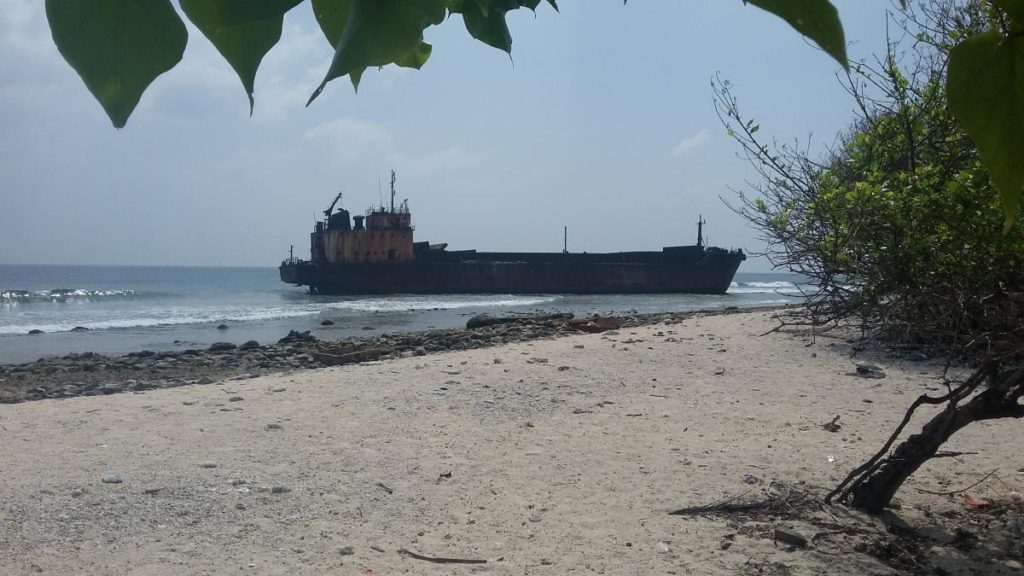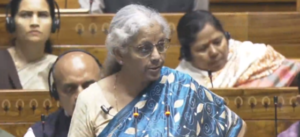Lakshadweep: When the Gujarat Model Steamrolls an Island Paradise
Sajai Jose
Praful Khoda Patel, a BJP leader who formerly served as Home Minister under Narendra Modi during the latter’s term as Gujarat Chief Minister, has had a controversial track record ever since he was appointed the Administrator of Union Territory of Dadra and Nagar Haveli and Daman and Diu in 2016. Allegations against him include an attempt to influence Kannan Gopinathan, the collector for Dadra and Nagar Haveli and other election officials during elections, forcible takeover of seafront owned by adivasi fishing communities, and the abetment of the suicide of tribal rights advocate and Lok Sabha MP Mohanbhai Sanjibhai Delkar in February 2021.
However, his actions following his appointment as Administrator of Union Territory of Lakshadweep.in December last year, can only be described as a full scale assault on the overwhelmingly Muslim population of this Union Territory. In moves resembling actions of a conquering despot or colonial official, Patel has banned meat consumption, made local dairy products unlawful, shut anganwadis, ordered a string of demolitions and invoked harsh laws to stifle opposition and intimidate any opposition.
The controversial new laws include the Draft Lakshadweep Development Authority Regulation 2021 (LDAR) — which allows the administrator authority to forcibly remove or relocate residents from their property for any developmental activity; the Prevention of Anti-Social Activities Act (PASA), introduced in January 2021, which allows the authorities detain anyone without public disclosure for up to a year and the draft panchayat notification, where members with more than two children are disqualified.
Particularly alarming is his suspension of Covid protocols in the islands, which according to the locals have led to a sharp rise in Covid cases. The rule that required mandatory quarantine for people from the mainland was removed, and instead only RT-PCR negative reports are required for entry now. As a result, Lakshadweep, which had zero Covid cases in 2020, has seen a sharp spike in cases during the second wave, with a total of 22 deaths reported, while daily cases have surged past 300.
The draft Lakshadweep Animal Preservation Regulation prohibits the slaughter of cattle and consumption of beef, a staple food of the locals, more than 90% of whom are Muslims, has led to a lot of uproar on the island. The new law allows the authorities to seize beef or beef products, with violators liable to get prison terms of up to 10 years and fines of up to Rs 5 lakh. Even slaughter of other animals will require prior permission, and non-vegetarian food has been removed from school menus as well.
After ordering the closure of local dairy farms, and instructing for the livestock to be auctioned, the Administration has allowed Gujarat-based Amul to open its outlets in the island, starting with its headquarters Kavaratti. Amul, one of the world’s largest dairy cooperatives, is known to be controlled by the RSS-BJP combine in Gujarat. Angry residents, for whom livestock is the second biggest source of income after fishing, have now called for a “#BoycottAmul” campaign to protest the move.
The new draft Panachayat regulations (amendment) act prevents those who have more than two children from contesting panchayat elections. The administration has closed down 38 Anganwadis (child care centres), and also dismissed hundreds of contract and casual workers employed by government offices, and also terminated mid-day meal workers, physical education teachers, Marine Wildlife Protection Watchers etc.
Meanwhile, the norms for serving liquor at the various resorts in the Lakhadweep islands have been diluted. Under the new rules, resorts in all islands will be allowed to supply liquor, whereas earlier, it was only resorts in the uninhabited Bangaram island that were allowed to do so.
Adding to this long list of high-handed and anti-democratic moves, the Coast Guard Act was invoked by the Administration to demolish temporary sheds built by fishermen to store their equipment on the shore, which had been built with official permission. This is a body blow to a community for which fishing is the main source of income. Many homes and public amenities are slated to be demolished for “road widening” in tune with “National Highway standards” in a place where traffic is minimal owing to the low number of vehicles.
The administration has used the Goonda Act to quell opposition to its policies, including people who had erected banners protesting the Centre’s CAA/NRC laws earlier. Lakshadweep has the lowest crime rate in the country (perhaps in the world too), so the people believe that the real purpose is to target those protesting against the Administration and Union government policies.
The Administration has also ordered all freight transit from Lakhadweep through Beypore port in Kerala, severing traditional ties of the Malayalam-speaking island populace with the state. According to Elamaram Kareem, parliamentarian from Kerala, the plan is to sever the island’s historical connection to Kerala and instead all island-related traffic to Mangalore, an RSS stronghold in BJP-ruled Karnataka.
Several members of Parliament from the Left parties as well as the Congress in Kerala, which shares historical ties with the islands, have protested what they have termed the “autocratic” approach of the new administration. Among others, Lakshadweep MP Mohammed Faizal PP, Elamaram Kareem and Kerala Chief Minister Pinarayi Vijayan has said that the Administrator’s actions threaten the culture and life of the people of Lakshadweep. “Such acts cannot be accepted. Kerala has long-standing ties with Lakshadweep. There is a bid to destroy that. Persons concerned should keep away from such a narrow-minded approach,’’ Vijayan recently said.
(Sajai Jose is the editor of Ecologise.in. Courtesy: Countercurents.org.)
❈ ❈ ❈
At the Heart of Lakshadweep ‘Shock Therapy’ Lies a Policy to Grab Land
Ayaskant Das
New Delhi: At the heart of the shock therapy meted out to Lakshadweep islands in the midst of the COVID-19 pandemic, lies the controversial Town and Country Planning Draft Regulations 2021. As part of the slew of draft policies, these regulations are not only aimed at concentrating power in the hands of the Administrator of the India’s smallest Union territory, a position occupied by Prime Minister Narendra Modi’s close confidante Praful Khodabhai Patel, but also have the potential of alienating the local population from the traditional land rights that they have enjoyed for generations.
The timing of inviting public consultations for the draft policy raises suspicion. The document was uploaded on the website of the Lakshadweep administration on April 28, at a time when most of the country was under the deadly grip of the second wave of the pandemic, with daily positive cases breaching the four-lakh mark.
With Lakshadweep being one of the five Union territories that do not have legislative Assemblies, its administration is directly under the control of the Central government through an Administrator. The control by the Central government will be further fortified with the implementation of the proposed regulations.
“As per provisions of the draft regulations, the Administrator will be the absolute authority in all matters related to town and country planning, including appointment of the Chief Town Planner, members of the Planning and Development Authority and declaration of planning areas and obsolete areas in the islands. The Administrator is further empowered to make any rules and will also have absolute powers to perform any action under these regulations,” said Faseela Ibrahim, a lawyer based in Minicoy Island of Lakshadweep.
Concentration of power in the Administrator
Section 2 (12) of the regulations clearly state that “Government” means “the Administrator of the Union Territory appointed by the President under article 239 of the Constitution”.
The Planning and Development Authority, a body which is sought to be constituted for planned development of the archipelago in accordance with the draft regulations, is likely to be skewed in favour of the government. Chapter III of the draft regulations provides the Administrator with the sole discretion to appoint its Chairperson, its Chief Town Planner and the three expert members on its board.
As far as the appointment of public representatives to the Planning and Development Authority is concerned, the Administrator again wields supreme power. In cases where more than one local self-governing bodies exist within a particular area earmarked as a ‘planning area’, the Administrator has the sole prerogative to decide as to which of those bodies can send a representative as a member to the Authority.
Which will be the ‘planning areas’ in Lakshadweep?
The Administrator has the power to earmark any portion of the islands as a ‘planning area’ other than Cantonment Areas, which belong to the Defence Ministry. But the regulations contain no word about the fate that will befall infrastructure – houses, schools, hospitals, commercial establishments – already existing within the ‘planning areas’.
Section 6 of Chapter III further bestows powers upon the Administrator to subsequently withdraw any portion of land from a notified ‘planning area’.
Relocation of local population
How does the government plan to carry out developmental activities in these ‘planning areas’ that have traditionally been habitations of the local population?
The government, through the Planning and Development Authority, can displace local population from their houses and landed properties by declaring any part of the islands as ‘obsolete’ or having ‘bad layout’.
As per Section 2 (29): “Re-location of population’ means in relation to an area of bad lay-out or obsolete development or a slum area, the making available, in that area or elsewhere, of accommodation, for residential purposes or for carrying on business or other activities, together with amenities, to persons living or carrying on business or other activities in the said area who have to be so accommodated so that the said area may be properly planned.”
The process of alienation of local population will not end at this!
Section 33 lays down that all activities in the island should confirm with the Development Plan for the islands (which will be devised by the Planning and Development Authority) from the date on which it is notified. Any activity contrary to this plan – even if it is as basic as construction of a dwelling unit – can be undertaken by an islander only with ‘permission’ from the Planning and Development Authority (PDA). The ‘permission’, further, will be given only after paying a certain fee.
But an islander cannot expect to live happily ever thereafter!
The validity of the ‘permission’ has to be renewed every three years. The PDA has the sole prerogative to decide whether or not to extend the validity. This cycle will be repeated ad infinitum. Section 41 also confers power upon the PDA to revoke ‘permission’ at will.
Further, anyone found deviating from these rules will be penalised heavily. A fine of Rs 2 lakh will be imposed if any islander is found to be carrying out any activity contrary to the scheme of development with provisions for additional penalty of Rs 20,000 per day till the date that the violation is rectified.
But no peace can be guaranteed for an islander even if validity after the ‘permission’ has been extended and the penalties have been duly paid. Section 27 calls for a survey of the Development Plan at least once every 10 years. The government can alter the original plan if it deems fit after conducting the survey.
“The draft regulations are unconstitutional and undemocratic since these are directly detrimental to the interests of the local population. The government’s argument is that the islands will be beautified, like Maldives, but this cannot be done at the cost of displacing the local population,” said Hamdullah Sayeed, former Congress member of Parliament from Lakshadweep.
Yet another section of the draft regulations arbitrarily empowers the government to evict people from their properties if it feels that these people are not entitled to occupy the property within the scheme of the development plan.
As per Section 72: “On and after the day on which a final scheme comes into force, any person continuing to occupy any land which he is not entitled to occupy under the final scheme may, in accordance with the prescribed procedure, be summarily evicted by the Planning and Development Authority or any of its officers authorized in that behalf by that Authority”
If there happens to be any impediment in its way, the district administration is empowered to “enforce the eviction of such person or secure delivery of possession of the land to the Planning and Development Authority.”
Again, under Section 58, the PDA is empowered to take over any land if it feels it is necessary for the planned development of the islands – even ‘forcibly’ – after serving a notice period of 30 days. But islanders cannot sue the PDA against injustices meted out to them. The draft regulations provide the PDA with immunity from legal proceedings against any work undertaken by it “in good faith” for the development of the islands.
Impact of planned development
The planned development of Lakshadweep has apparently been mooted for economic growth. The regulations talk of mining and quarrying activities, apparently to extract precious mineral resources lying unexplored under the islands for thousands of years or more.
As per Section 2 (29): “’development’ with its grammatical variations and cognate expressions, means the carrying out of building, engineering, mining, quarrying or other operations in, on, over or under, land, the cutting of a hill or any portion there of or the making of any material change in any building or land, or in the use of any building or land, and includes sub-division of any land” (emphasis added)
Further, Section 17 mentions prospective development of national highways, arterial roads, ring roads, major streets, railways, tramways, airports and canals in the islands. It is a matter of common knowledge that such infrastructure facilities can be developed only after large-scale acquisition of land which will, in turn, not only lead to displacement of the local population but also loss of livelihoods. Further, what will be the effect of this development on the ecologically fragile islands, none of which have an area exceeding 4 square kilometres?
“What the Union Territory of Lakshadweep actually needs is a management plan for protection of its ecology along with ensuring the livelihood of the local population. This set of regulations is a mere copy-and-paste job from existing laws of other states. It has been put in place without application of mind,” said Debi Goenka, Executive Trustee of Conservation Action Trust, a non-profit organisation involved in conservation of wildlife and environment.
Goenka’s observation that this is a mere ‘copy-and-paste job’ is vindicated upon perusing the section of the draft regulations that defines “agriculture” as activities including “breeding and keeping of livestock including cattle, horses, donkeys, mules, pigs, fish, poultry and bees”. As per locals, never have horses, donkeys, mules and bees been bred upon the islands in its centuries-old history!
The government has defended its action on the basis of the argument that the tourism potential of Lakshadweep has never been explored while neighbouring Maldives has made its mark as an internationally attractive tourist destination. The policy, therefore, in the eyes of the government, is geared to develop Lakshadweep as a tourist destination like the Maldives.
But did the government conduct a feasibility study to assess if at all a Maldivian-style tourism industry can be imposed upon Lakshadweep in the backdrop of its unique geographical and socio-cultural characteristics? The total area of the Maldives is around 298 sq km, as compared to Lakshadweep, which has an area of 32 sq km. The Maldives has a total population of 5.5 lakh as compared to Lakshadweep, which has roughly 64,000 inhabitants.
A query was sent on behalf of NewsClick to the Administrator as well as the District Magistrate of Lakshadweep asking, amongst other questions, as to whether a pre-legislative consultation or a feasibility study was conducted before formulating the Town and Country Planning Regulations. No response had been received to the query at the time that this article was published. The article will be updated as and when any response is received.
Meanwhile, a Public Interest Litigation has been filed in the Kerala High Court demanding fresh public consultations before finalisation of the draft regulations on the basis of the allegation that pre-legislative consultations for the draft rules were never conducted.
It remains to be seen how far the Central government is successful in imposing the drastic reforms from above upon a centuries-old socio-economic network of traditional ties that is prevalent in Lakshadweep.
As per activists, other reforms that are being simultaneously unleashed upon Lakshadweep, including the Goonda Act (Lakshadweep Prevention of Anti-Social Activities Regulation, 2021), which will allow the government to arbitrarily detain people for as many as 12 months, or the proposed beef ban (Lakshadweep Animal Preservation Regulation, 2021) could be veneers behind which corporate takeover of the islands can easily take place.
The aforementioned policies were notified for public consultation one after the other, in January and February, respectively, this year, well before the Town and Country Planning Draft Regulations were uploaded in the public domain. Not surprisingly, there has been strong resentment to the reforms from the local population itself.
“The scheme of (Narendra) Modi government in attempting a socio-economic makeover of Lakshadweep is not only aimed at bringing about sweeping changes to the Muslim-dominated Union Territory in order to create a new conflict zone down south for reaping political dividends, but more so to hand over pristine islands of the archipelago to corporate entities for their commercial exploitation,” said Rajendra Ravi, National Convener of the National Alliance of People’s Movements.
(The writer is an independent journalist. Courtesy: Newsclick.)
❈ ❈ ❈
Press Release, 27 May 2021
An Appeal For Lakshadweep
To,
His Excellency
The Governor of Kerala
Kerala Raj Bhavan
Vellayambalam
Thiruvananthapuram
Sub: An Appeal for the People of U.T of Lakshadweep
Sir,
We are a group of concerned citizens living in Thiruvananthapuram who have been shocked since a few days with news about the happenings in the U.T of Lakshadweep that will affect the life and livelihood of the community there.
We are comprised of social scientists, social activists, ecologists, geographers and environmental scientists. Some of us have been closely associated with studies in the U.T of Lakshadweep on the ecology and human life since 1994.We have been aware of the ethnic community structure of this unique bit of land lying afloat the mighty Arabian Sea that has withstood the vagaries of the ocean and weather.
We understand from various studies which have been done by credible historical, cultural and ecological institutions that the stability of the coral reefs that protect the islands have been nurtured and maintained by the life and culture of the homogenous community which lives in the islands. The human occupants of the island have adapted and found a niche that enables them to cope with the limitations of land and fresh water availability. The social fabric built up on an ecosystem based economy linked to fishing is also connected to the cooperation, tolerance, acceptance and mutual dependence that exists there.
From the recent policy changes in the name of reforms that are proposed to be implemented in the islands unilaterally we also know that no consideration or due respect has been given to the time tested ways of land use, land ownership, ocean resource utilisation and or livelihood practices adopted by the community. To add insult to injury , the culture and traditions of the ethnic group there has been overlooked by intervention into the food ethos, the reproductive freedom and self reliance of the people. The traditional existing methods of decision making using one of the oldest forms of democratic decentralisation which adds to the cohesiveness will be torn apart by these new changes. The carrying capacity of the 32 sqkm area of the inhabited islands will be stretched to the limit and will adversely impact the life of the people if high volume tourism is implemented.
We strongly condemn this wrong and undemocratic move of a person holding a important decision making role in a politically and geographically sensitive area like the islands. Any kind of unrest and law and order situation that may ensue will have direct link to the above said injustice.
On the basis of all that we have understood, we request you to immediately stop all reforms that are underway and call for an urgent review of each one of them. The changes being proposed stated to be for the welfare of the human community should be implemented only after a thorough consultative process. The programs being planned there should have a long term vision that takes into consideration a regional , need based, consultative approach rather than the top-down way being envisaged now.
This is indeed the need of the hour if access to resources, human rights, secularism, democracy and ethnicity of the island community is to be preserved as is envisioned in the Preamble to the Constitution of India. What the islands need is access to safe and secure health care, transportation to mainland for education, just governance, food security and livelihood options connected to the ecosystem that they are part of .
We look upon you with expectation and hope to intervene and set things right in the coral islands where each citizen has equal rights to options of livelihood, nutrition, land use and all other choices that hold a community together. We have much to learn from this community and let us not miss the chance and be remembered as being part of a generation that conducted a deliberate destruction of a way of life.
Thanking you in anticipation,
Dr. D. Nandakumar, Retired Prof of Geography, University of Kerala
Dr. S. Santhi, Environmental researcher and scientist
Dr. Radha Gopalan, Environmental Scientist
Shri. Gopakumar Pillai, Ocean hydrographer
Ms. Usha P.E, Social activist
Ashok.S., Human Resource Consultant
Jolly Varghese, Geographer
Renu Henry, Environmental activist
Anitha.S, Ecologist, Subject expert on ecology of U.T of Lakshadweep
CC- Shri Praful Patel, Hon Administrator, U.T.Of Lakshadweep, Kavaratti
(Courtesy: Countercurrents.org.)




